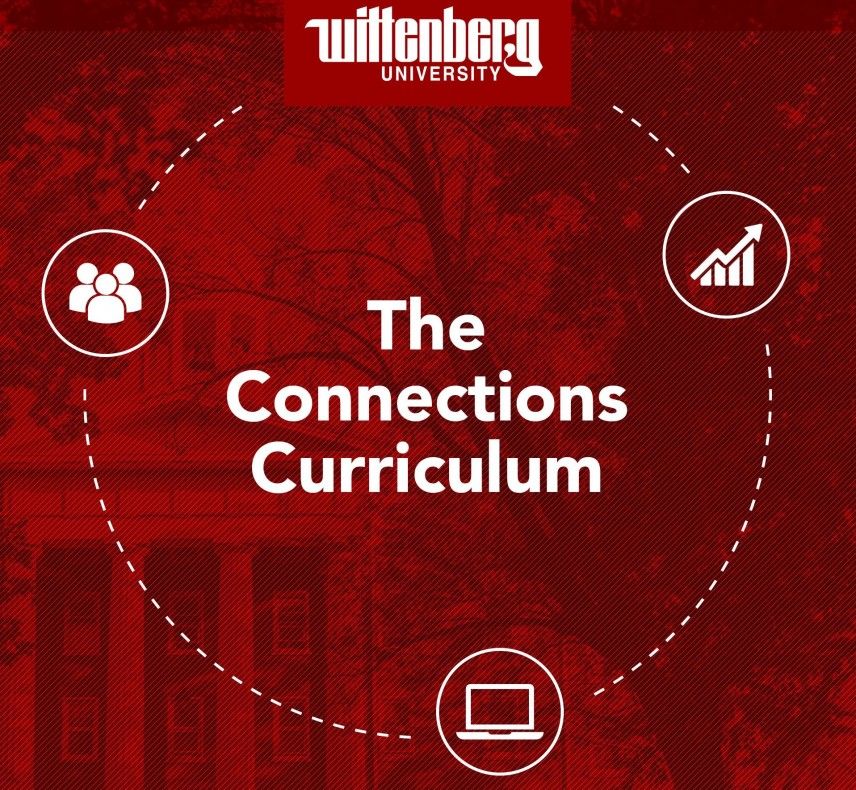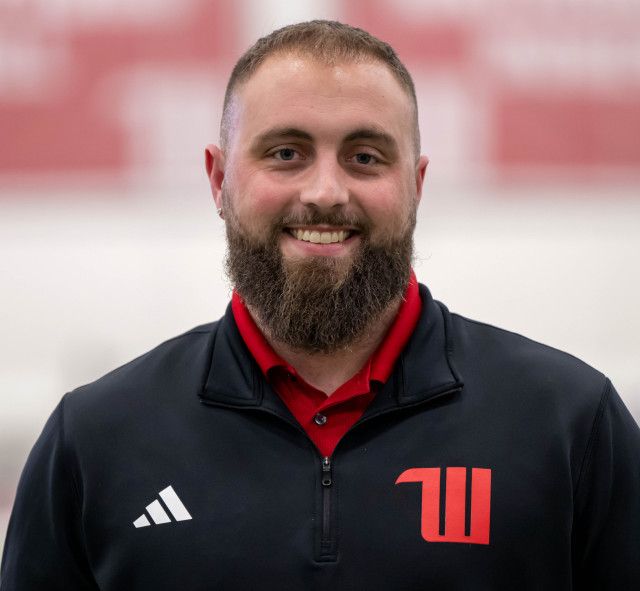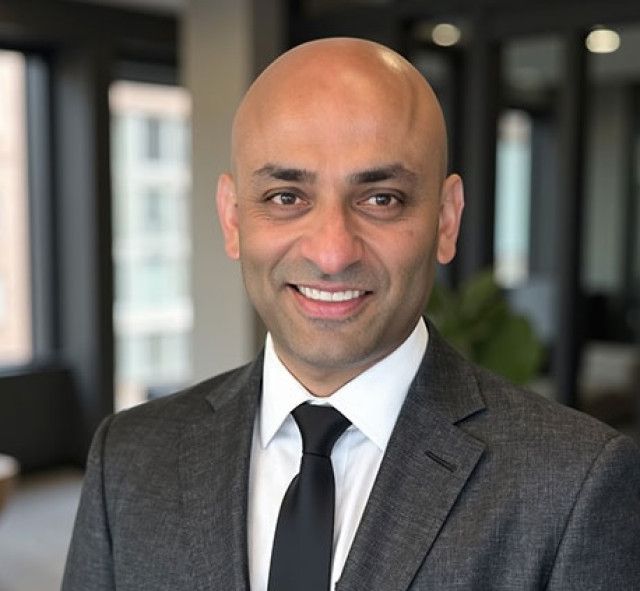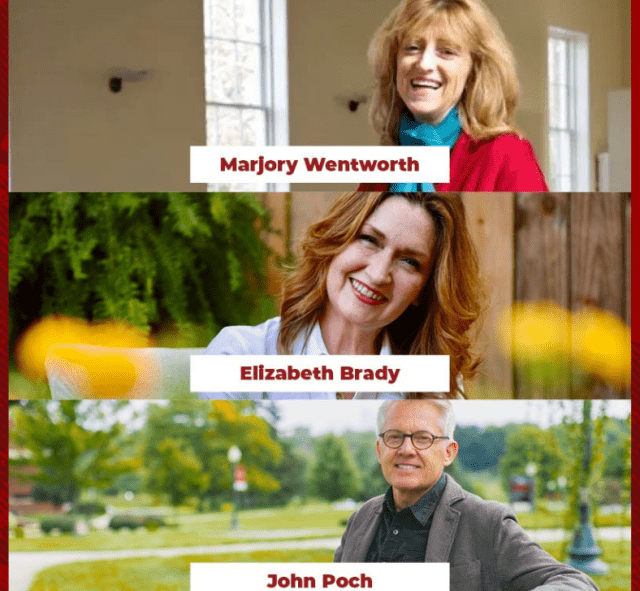Spearheaded by the General Education Advisory Committee and the Educational Policies Committee, a bold overhaul of the University’s general education curriculum is underway and set to launch this fall with the Class of 2025.
Providing a new way for students to engage in courses and the world beyond Wittenberg, the new Connections Curriculum will require each student to complete three experiential learning components: civic engagement (the current community service requirement), plus two additional opportunities such as an internship, a mentored research project, national or international study, or a leadership experience. Students will also develop their own “cross-campus connection” (CCC) that will integrate the content of three academic courses with their experiential learning requirements. They can choose a CCC from a list of provided topics, design their own, or choose an interdisciplinary minor. A culminating reflection experience will then help students articulate and showcase how a liberal arts education has honed their skills and prepared them for graduate school or employment.
“The start of every academic year brings a host of possibilities, and they are multiplied this year with the Connections Curriculum. We look forward to seeing what happens when students discover the opportunities they'll have this fall,” said Mike Mattison, professor of English, who is also the associate provost for undergraduate curricular development and academic support services. “Our new curriculum provides opportunities for students to gain a solid academic foundation in multiple disciplines and then connect their classroom knowledge with practical situations, testing new skills in the wider world.”
The curriculum will consist of 10 key learning outcomes broken down into three main categories: connections, core competencies, and critical and creative thinking. The first of the learning outcomes is the experiential learning requirement, while the next five are core competencies that provide foundational skills, such as writing, oral communication, quantitative reasoning, global diversity, and U.S. diversity and equity. The remaining four learning outcomes are critical and creative thinking courses that provide the traditional breadth of a liberal arts education: scientific inquiry, social scientific methods, creative process, and historical and critical analysis.
Students will apply concepts from their coursework to experiential learning opportunities and these experiential learning opportunities also connect students with future collaborators, potential employers, mentors, and the community.
“We are very excited about the possibilities for our students, faculty, staff, and our larger community under the new Connections Curriculum,” said Amber Burgett, associate professor of biology and director of general education. “In designing this curriculum, our focus was on how to best provide our students the tools and knowledge they need to leave Wittenberg prepared to take on whatever comes next. I believe the new curriculum will do just that. Students will have opportunities to connect with faculty across disciplines around topics or themes that are interesting to them. They will be able to connect with staff, alumni, and the Springfield community through their experiential learning. And most importantly, they will develop the ability to reflect on these experiences and articulate their value when they leave campus to go pass on their light.”
The Connections Curriculum is designed to be more than just checking boxes to meet Wittenberg’s general education requirements – it is intentional in integrating the knowledge a student gains in the science classroom with the discussions they have in their religion class, and the projects they work on in their art class. More than that, the Connections Curriculum will give students the tools to reflect on and articulate how their general education courses connect with their major, their future career interests, and their other experiences across campus.
“I used to use the metaphor of a college education as a journey, but that seems to imply almost a straight path to a specific future. Now, instead, I have begun thinking of a student’s time at Wittenberg as a process of developing connections – connections with friends, with faculty, with staff, with mentors, internship supervisors, and research partners,” Provost Michelle Mattson explained. “All of these connections are part of a student’s Wittenberg education – from relationships with other students, who will eventually be life-long friends and members of future professional networks, to opportunities to do research with a faculty member, to connecting courses that approach similar topics but through different disciplinary lenses. We actually named our new curriculum ‘Connections’ for that reason because we believe it will help students build bridges among the various parts of a college experience.”
The new, outcomes-oriented curriculum will align well with what recent research considers most important to prospective Wittenberg students: job preparation, majors that lead to careers, internships and research opportunities, and job placement rates. It will also continue to emphasize the skills that employers are looking for, from communication, problem-solving, and quantitative skills to teamwork, initiative, and leadership.
“During the spring semester this year, the General Education Advisory Committee and I have had the pleasure of reading and approving about 134 proposals for courses under the new Connections Curriculum,” Burgett added. “The variety of courses, the opportunities they provide, and the skills our students will develop is impressive. It is a really exciting time to be a Tiger!”
To learn more, check out the Connections website: Connections Curriculum | Wittenberg University







